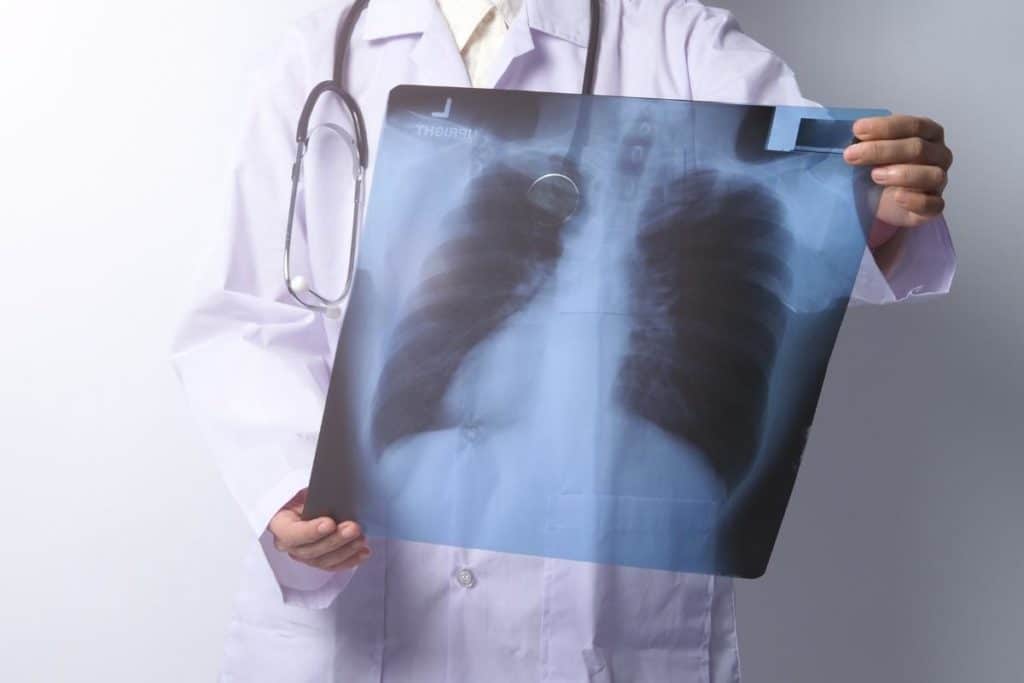Table of Contents
Lung cancer if timely detected has the potential to improve treatment response and survival outcomes. To bring this concept to reality, China’s Peking University People’s Hospital has developed a quick, and effective test to assess early-stage lung cancer
Currently, majority of screening techniques had limited performance in assessing lung cancer and accuracy was also low. Due to these problems, a new test has been devised.
Novel test and its benefits
The new test is named as Lung Cancer Artificial Intelligence Detector (LCAID). It’s a non-invasive test that determines the level of lipid biomarkers in patient’s plasma samples.
The test has high accuracy which makes it more important to implement in other modalities such as existing screening methods to promote the detection of early-stage lung cancer.
It has several benefits:
- Higher accuracy
- More sensitivity and specificity
- Earlier detection of lung cancer
- Prevents unnecessary exposure to harmful radiations.
- Non-invasive
Evidence from clinical trials showed that LCAID was effective in correctly identifying the Stage I cancer, with more than 90% of the patients diagnosed timely.
Importance of Early detection of lung cancer
Lung cancer if detected at an early stage (before metastasis) can significantly improve the treatment outcome and survival. According to the American Lung Association, approximately half of the patients diagnosed with lung cancer have chance of survival at 5 years after their diagnosis. In such situation, tumor has already metastasized to the lungs. On the other hand, patients with tumor that has spread to other organs apart from the lungs have a low 5-year survival rate of only 5%.
A traditional approach for lung cancer screening is Low dose computed tomography (low dose CT scans). However, it often leads to misdiagnosis in healthy population. Low dose CT has a high false-positive rate (9-50%), is expensive and exposes the patient to radiation.
Hence, it is critical to develop a novel test that overcomes these limitations.
Clinical study for LCAID
Plasma samples of 171 patients affected with lung cancer were analyzed using liquid chromatography-mass spectrometry (LC-MS). On the other hand, a control group with 140 individuals was also analyzed who did not have lung cancer. Overall, >2100 lipid metabolites in the plasma samples were identified.
Following this, researchers implemented machine learning algorithms to train and identify early-stage lung cancer. This was done by using lipid profiles from 311 participants. The researchers found that the ML algorithm successfully predicted the lung cancer with high accuracy after being trained with 2100 lipid metabolites.
Furthermore, the test was effective in correctly identifying the level of nine lipids in participants with early-stage lung cancer compared to those without lung cancer. With this outcome, Lung Cancer Artificial Intelligence Detector (LCAID) was finally introduced.
Test performance
The LCAID test has a high accuracy in detecting early-onset lung cancer, which was 91.74% in case of thoracic surgery and 96.53% in case of screening groups. The specificity and sensitivity were 92% and 90% in the surgery and screening groups.
Conclusion
LCAID has high accuracy and very low false-positive rate that suggests that if used in combination with low dose CT scans if can significantly improve the detection of lung cancer.







